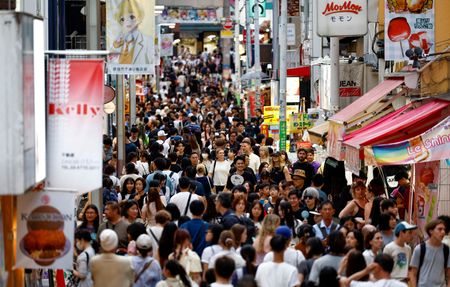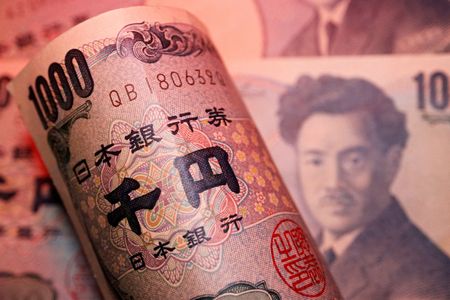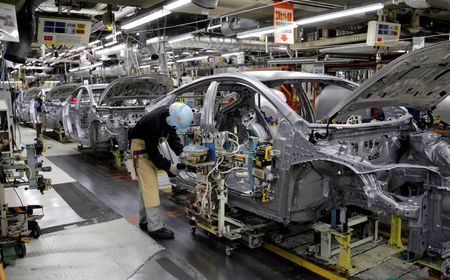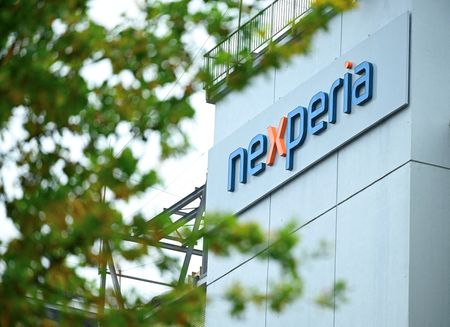By Satoshi Sugiyama
TOKYO (Reuters) – Japanese household spending rose for the first time in five months in year-on-year terms in December and at a much faster-than-expected pace, but the government said it was too early to call a bottoming out in consumption’s downtrend.
Consumer expenditure climbed 2.7% in December from a year earlier, data from the internal affairs ministry showed on Friday, better than the median market forecast for a 0.5% uptick. It grew at the fastest pace since August 2022, according to the ministry.
On a seasonally adjusted month-on-month basis, spending increased 2.3%, versus an expected 0.2% fall.
The increase is largely driven by one-off or seasonal factors such as equipment repairs, automobile purchases and cold weather driving up winter apparel demand, an internal affairs ministry official said.
However, the official added it was too soon to say household spending was on a full recovery trend as cost pressures squeezed consumer purchasing power.
“There are still areas where people are spending less and being frugal, such as food and utilities,” the official said. “We still need to continue to look at whether (the recovery) will continue in the future.”
Consumption and wage trends are key factors the BOJ is watching to gauge economic strength and determine the need for additional rate hikes.
In separate household spending data for the whole of 2024, spending decreased 1.1% from the previous year, as consumers tightened their belts in the face of rising prices.
The BOJ raised interest rates to 0.50% in January, the highest in 17 years, signalling its confidence that rising wages will keep inflation stable around its 2% target.
December’s pay data released on Wednesday showed inflation-adjusted wages rose 0.6% year-on-year thanks to a winter bonus bump, with government officials expressing optimism that wage hike momentum is growing.
Going forward, analysts are sceptical of a full-fledged recovery in personal consumption.
“Although high wage increases are expected in this year’s pay negotiations, the recovery in real wages is expected to be limited due to factors such as the rising cost of food,” said Masato Koike, senior economist at Sompo Institute Plus.
“We expect real wages to enter positive territory in the second half of 2025, and until then the pace of recovery in consumer spending will also be gradual.”
(Reporting by Satoshi Sugiyama; Editing by Chang-Ran Kim and Sam Holmes)










